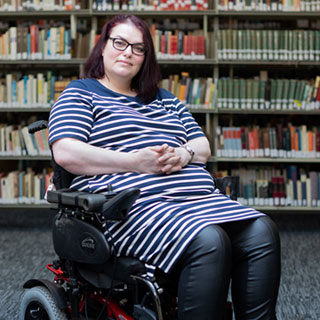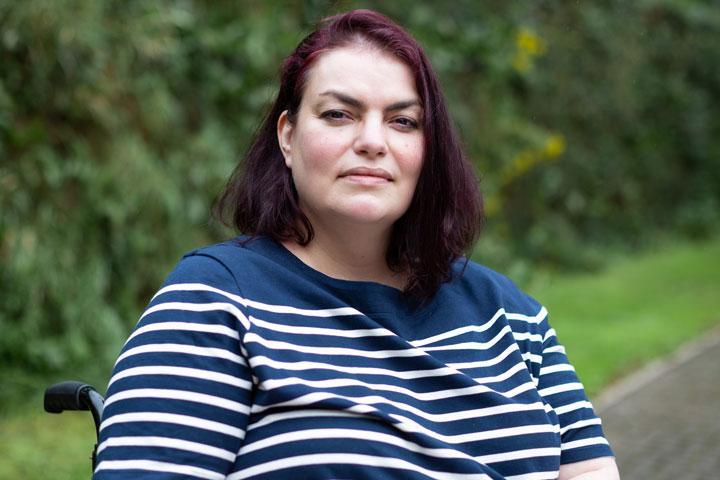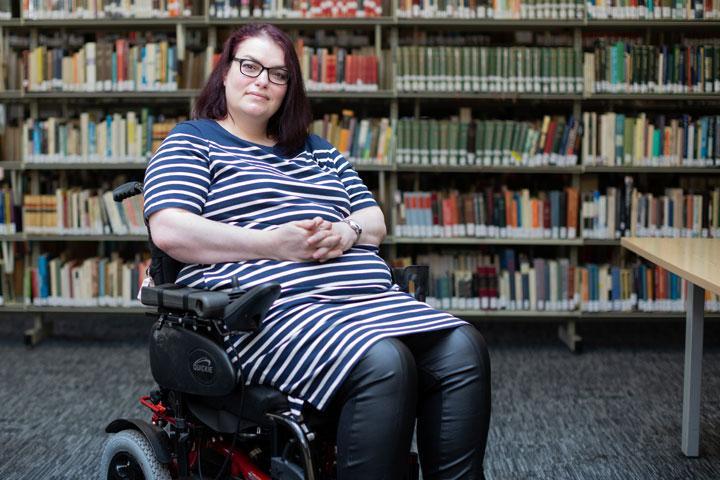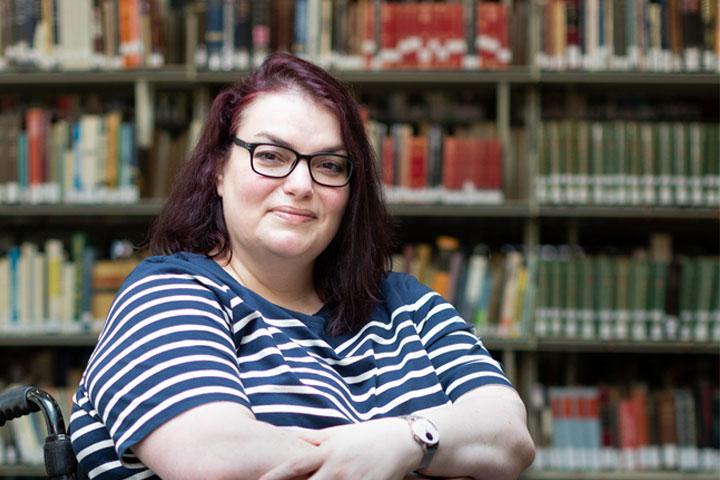
Melanie
MSc Applied Artificial Intelligence and Data Analytics
Melanie is studying our new MSc Applied Artificial Intelligence and Data Analytics course. An adult learner, she recently returned to education 30 years after starting her first degree.
Tell us about yourself
Can you tell us a little about yourself, your background, your ambitions, and why you decided to study this programme?
"Sure! I’m a mature student, juggling my studies with parenting my teenage son.
"I started my first degree 30 years ago in a completely different subject, modern languages and literature, and I’m living proof you don’t need to have a STEM background to enrol for – or enjoy – a course like this."

"I’ve spent much of my life working with data in marketing-related disciplines, usually with a focus on how the stories in the data can help give greater insight into problems and potential solutions.
"I was working in user experience research when the pandemic brought everything to a halt. While it’s possible to do UXR remotely, and my background meant I was familiar with a range of techniques, client companies were reeling from the implications of how they were going to cope internally with furlough and so on, rather than how projects could potentially continue.
"Work dried up pretty quickly."
"In some ways, it was the push that I needed.
"I had been thinking for some time about what I wanted to do next. I love UXR because finding things out is always interesting, but I’m a wheelchair user and I’ll admit commuting is increasingly tiring, especially if I have to use public transport.
"I’d been considering shifting focus to my analytics skills, which would allow me more opportunity to work remotely and let me use my energy on the work instead of the commute. I’d already started looking into what I might need to update my skillset to join the workforce as a data scientist, when the Office for Students scholarships were announced."
When the Office for Students scholarships were announced, I had time on my hands, and it felt like too big an opportunity to pass up.
A future in AI
How does the programme prepare you for a future in artificial intelligence and data analytics?
"The programme is a conversion course, so it’s possible to come in, like me, with no technical background and still gain the skills you need.
"While I think in retrospect I might have benefited from spending more time learning to code in Python, for example, before joining, that’s more because I have a bit of a mental block about it. Human languages I’m good at, computer ones take a little more time!
"The course is a lot more than just coding though; coding is no good if you don’t understand what you’re trying to solve."
"The mix of modules has been designed to ensure that we graduate with a grounding in modern business practice and an understanding of the real-world application of what we’ve learned.
"There are also interpersonal skills on the programme. It’s been incredibly useful to gain insight into my leadership style, and the Cross-Cultural Management module has been really thought-provoking and helpful, especially having worked with a range of international clients over the years.
"There are things that make a lot more sense now."
The course is about understanding how different elements work together and separately, and how they can be used as a toolkit to find the answers to a whole range of questions.
Students from under-represented backgrounds
The programme is aimed at graduates from backgrounds often under-represented in the field of technology, including AI. Have you benefited from this, and if so, how?
"Yes. As a disabled woman, I was awarded one of the Office for Students scholarships. It simply wouldn’t have been possible for me to join the course if I hadn’t been, because COVID left us with a limited income to support a family of three people.
"Having the scholarship alongside the student loan has meant that I was able to turn what would have been a career gap into a productive investment in my future.
"It’s a once in a lifetime opportunity, and I had to pinch myself when I got the email to say I’d been selected.
"At my age, you start facing age discrimination, but I’ll be working for the next 20 years or so before I reach pension age."

I’ve so much to offer an employer, and being on this programme gives me a chance to demonstrate that this old dog still has a few new tricks.
Coming from a non-STEM background
Applicants to this programme don't need a background in STEM subjects. How does the programme support students from non-STEM backgrounds?
"We’re taught Python from scratch as well as other tools like SAS and Tableau, plus we’ve had the benefit of the University’s status as an AWS Academy to learn on and get certified in leading industry tools.
"The practical focus is really important, because theory only gets you so far.
"As students, we have access to SPSS, and I’ve really enjoyed the sessions we’ve had with a visiting academic to help us get more from that software, as well as to refresh our knowledge of statistical concepts."
What practical, hands-on skills have you learnt over the course of the programme so far?
"As I said earlier, Python is one of the big ones, along with SAS and AWS. The learning curve can be quite steep, but my confidence has grown enormously from the first wobbles.
"I can clean data in Python and create visualisations and analyses, perform linear regressions and other things."
"We’ve also been introduced to scraping social media comments and doing sentiment analysis as well as, perhaps most importantly, the ethical considerations attached to the work we’ll be prepared to do."
You absolutely have to read up on things yourself, because independent learning is key to getting the most out of the course. But if you show an interest, your lecturers will always go the extra mile to help you gain a deeper perspective.
A diverse cohort
Can you tell us about the diversity of the cohort?
"I think we have a pretty good mix of people on the course.
"I’ve really enjoyed getting to know students from all over the world. I now have new friends from Nigeria, Ghana, Pakistan… and that’s just off the top of my head. Plenty of other places, too!
"But that’s not the only kind of diversity."
"I’m far from the only woman on the programme, and there are a few of us who have Learner Support Programmes in place.
"We put these together with the Disability Service to ensure we have the adjustments we need in order to succeed, whether that’s extra time in exams, having breaks to stretch, which can be so important to hypermobile people like me, or whatever else may be needed."
The University offers confidential screening to all new students for specific learning difficulties (SpLDs), because the sooner you have access to help, the sooner you can focus on what matters.
Advice for future students
Do you have any advice for students who are considering studying this programme in the future?
"Absolutely. While it is a conversion course, you can never start learning too early.
"There are so many resources on the internet to give you an idea of what to expect in terms of the skills you may want to develop, as well as the concepts that you’ll cover.
"It’s well worth starting to read around the subject, and even having a go at learning some Python.
"Nothing you learn before starting the course will go to waste, but it will definitely tell you if you’ve caught the AI bug, and whether this course is going to be a good fit for you."

This isn’t a ‘one-and-done’ kind of course. It's the beginning of a longer journey into a really exciting field, where you have the chance to make a big impact within a few years.
Interested in MSc Artificial Intelligence and Data Analytics?
Find out more and apply:
